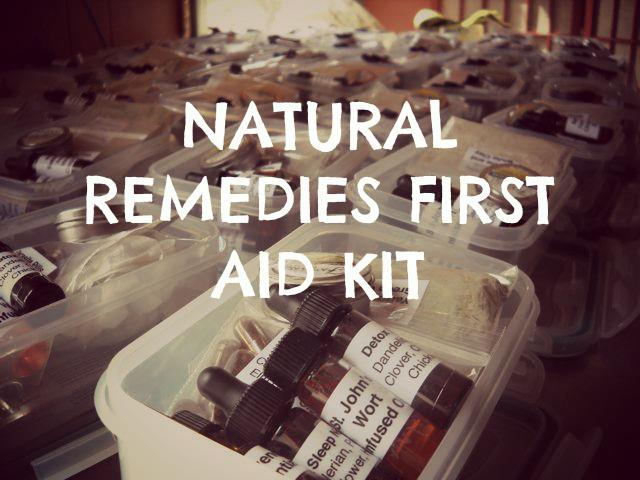Natural Remedies First Aid Kit Checklist
1. Valerian Tincture
The sedative properties of valerian make it useful for relieving anxiety, insomnia and tension; it may also provide mild pain relief.
2. Eucalyptus Essential Oil
A potent antibiotic and antiviral, eucalyptus is excellent for treating colds and sinus infections when used as a steam inhalation.
3. Witch Hazel Extract
Distilled witch hazel has reported astringent, antiseptic and anti-inflammatory properties, useful for treating insect bites and skin irritations. It’s also an excellent base for diluting essential oils for topical application. Do not take it internally.
4. Herbal Insect Repellent
Herbal insect repellents work well when applied liberally and frequently.
5. Arnica Gel or Cream
Arnica flowers have anti-inflammatory and circulation-stimulating properties; the gel or cream may help relieve sore muscles, sprains, strains and bruises. Do not apply arnica to broken skin.
6. Grindelia Poison Ivy Treatment
Grindelia, also known as gumweed, contains resins and tannins that help relieve the symptoms of plant rashes such as poison ivy and poison oak.
7. Lemon Essential Oil
Uplifting, clarifying lemon essential oil can be used as aromatherapy to help dispel mental fatigue. It is also antiseptic, but should be diluted before being applied to the skin.
8. Echinacea Liquid Extract
Rich in phytochemicals that boost immunity, versatile liquid echinacea extract can be used internally to treat infections and externally for wounds and burns.
9. Calendula/Comfrey Salve
With calendula’s antimicrobial and anti-inflammatory properties and comfrey’s ability to help heal wounds, this salve is perfect for minor cuts and scrapes.
10. Goldenseal Capsules or Powder
A powerful antimicrobial, goldenseal is effective against a variety of microorganisms that cause traveler’s diarrhea. The powder also has antiseptic properties and can be sprinkled onto cuts or wounds to stop bleeding. Do not use during pregnancy.
11. Ginger Capsules, Tea Bags or Crystallized Ginger
The antispasmodic and gas-relieving properties of ginger soothe digestive upsets. Ginger also has been shown to relieve motion sickness better than Dramamine, the conventional drug treatment.
12. Peppermint Essential Oil and Tea Bags
Peppermint soothes an upset stomach, eases congestion from the common cold and curbs itching from insect bites. If you have sensitive skin, dilute peppermint oil before applying. Peppermint tea may aggravate heartburn.
13. Eleuthero Standardized Extract
An excellent adaptogen, eleuthero can help prevent jet lag. Standardized extracts guarantee you’re getting sufficient amounts of eleutherosides, the herb’s active compounds.
14. Lavender Essential Oil
Multi-purpose lavender has sedative, anti-inflammatory and antiseptic properties. It’s helpful for anxiety, insomnia, headaches, wounds and burns. Most people can tolerate lavender essential oil applied directly to the skin. Do not take more than 1 to 2 drops internally.
15. Chamomile Tea Bags
Gentle enough for children, chamomile tea promotes relaxation, relieves indigestion and, applied topically, soothes skin irritations.
16. Elderberry Capsules or Liquid Extract
Elderberries can help prevent cold and flu viruses from invading and infecting cells. If you’re flying or otherwise potentially exposed to viruses, taking elderberry is a good preventive. If you come down with a cold or flu, elderberry can hasten your recovery time.
17. Aloe Vera Gel
Cooling and healing, aloe vera soothes the inflammation of sunburn and mild kitchen burns.
